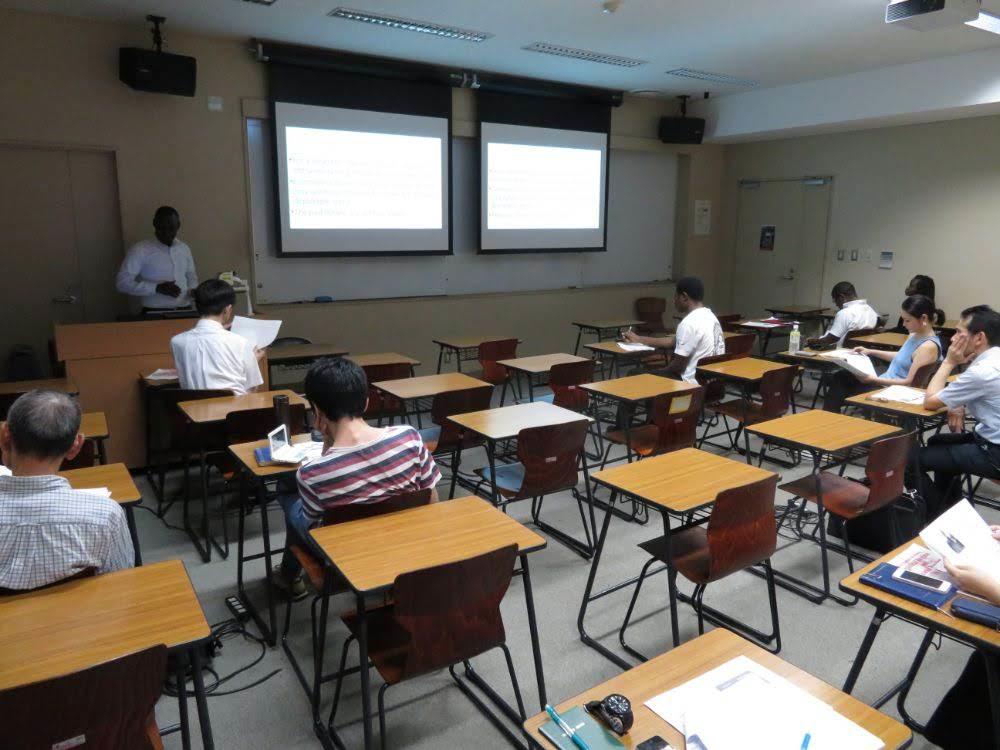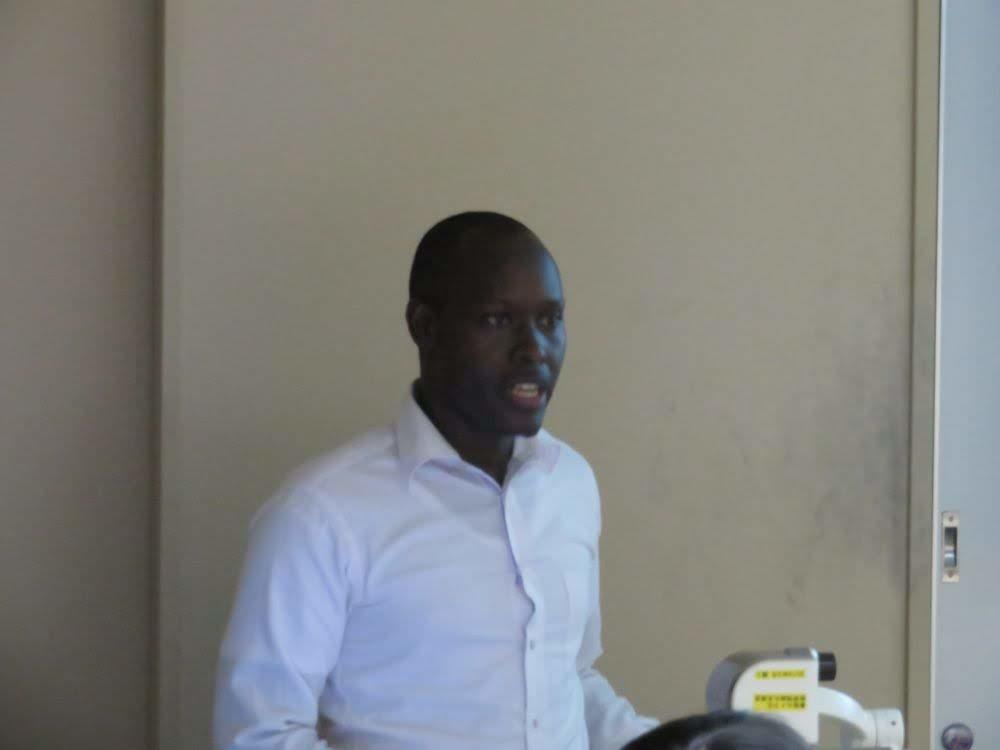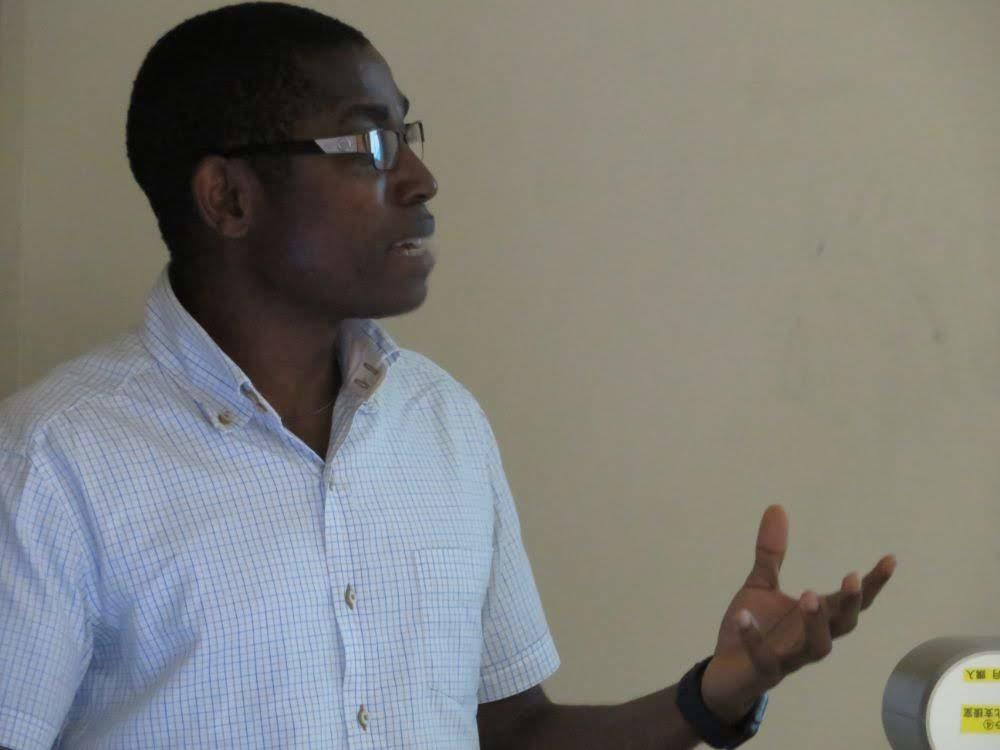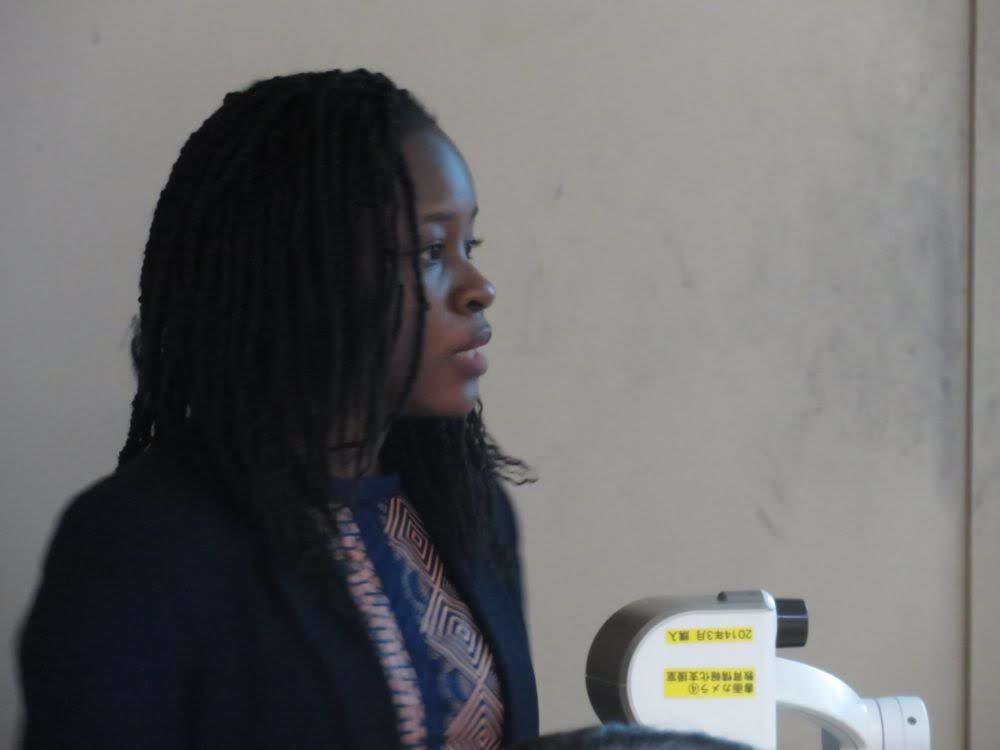◆Date & Time: Friday, June 28, 2019 5:40 - 7:10 pm
◆Venue: Room 322, Research and Lecture Building, Tokyo University of Foreign Studies
◆Theme: Political Regime and Societal Responses in Africa
◆Programme:
5:40 - 6:10 Ian Karusigarira
"Memory of War: Victimhood as a Regime Survival Card in Uganda's Revolutionary Politics"
6:10 - 6:40 Emmanuel Vincent Nelson Kallon
"Ethnoregional-Neopatrimonialism and the Challenge to Post Conflict Peacebuilding in Sierra Leone"
6:40 - 7:10 Maïsha Tunzine
"Land Grabs and Land Titling in Mozambique: Security Tenure for Whom?"
◆Report:

African Studies Center held its 37th Seminar on PhD Student's Workshop with the theme: "Political Regime and Societal Responses in Africa," at Tokyo University of Foreign Studies, where three African PhD students, Ian Karusigarira from Uganda, presented on "Memory of War: Victimhood as a Regime Survival Card in Uganda's Revolutionary Politics," Emmanuel V. N. Kallon from Sierra Leone, presented on "Ethnoregional-Neopatrimonialism and the Challenge to Post Conflict Peacebuilding in Sierra Leone;" and Maisha Tunzine from Mozambique, presented on "Land Grabs and Land Titling in Mozambique: Security Tenure for Whom?"

Mr. Ian Karusigarira presented about Memory of War in Uganda.
Ian Karusigarira, during his presentation, highlighted the equal importance of memory of war and ideological orientation to Uganda's revolutionary regime consolidation matrix. He explained the differentiations in the memory sites- the epicenter of the 1981-1986 war, the generational discourse of war traversing changing population, and the national discourse involving remembering, forgetting and repudiating some of the important historical facts. He noted that, in a revolutionary political system, lies a strong collective memory that attempts to organize and enforce national identity as a cultural property. Karusigarira also mentioned that national identity nurtured by the nexus between lived war representations and discourses on collective memory of war therefore, presents itself as a kind of politics with repetitive series of nation-state narratives, metaphorically suggesting how the assumed qualities of the nation's past reinforce the qualities of the present state of affairs. He concluded that this is the source of a political culture he calls the civic-public culture, a culture nurtured by society that had a direct interface with revolutionary war, a history of turmoil, and the regime that shapes what the nation as a whole should know and do or say.

Mr. Emmanuel Vincent Nelson Kallon explained about "ethnoregional-neopatrimonialism."
Emmanuel V. N. Kallon, on his part, expatiated that the sociological cultural pattern inherent within a certain structural image of societies, particularly one that directly relates to identity, its constructions, its strategic interactions within states, and the impacts such a pattern constitutes on the governance structure of heterogeneous environment of postwar state where maximum focus of liberal peacebuilding appears to have been concentrated. This almost entirely makes the viability of the liberal peacebuilding theoretical construction a non-starter, not compelling and therefore, impracticable. In addition, he specified that the sociological cultural pattern is visualized in the practice of an ethnoregional-neopatrimonial political system, where ethnic and regional identities of people at the very periphery of the nation-states regulate the behavioral pattern of political actors at the mainstream political structure. He concluded that the inherent nature of this practice in the political superstructure of Sierra Leone has made liberal peacebuilding in the country to be fraught in a serious sustainability dilemma.

Ms. Maisha Tunzine focused on land issues in Mozambique.
Finally, Maïsha Tunzine said, among the many debated issues connected to the issue of land, there is the concern of promoting a secured land ownership tenure that will give incentives for bigger investment in land as well as the importance of preventing and correcting social inequalities to promote a more equitable development. She also noted that foreign interest in land, particularly the case of Mozambique, has raised concerns over the implication of this concessions in the tenure status of rural communities, and majority of which only have a customary right to the lands they occupy in a context of a pluralist legal land system. Thus, Tunzine opined that this has promoted the formalization of rights or titling of communal lands, as a way to ensure their protection to rip the benefits of these investments. She concluded by asking that how the large scale investments in land are shaping land security in Mozambique and to what extent land titling improves the rural communities' bargaining power when land concessions are negotiated. This constitutes the pivot of her research interest.

